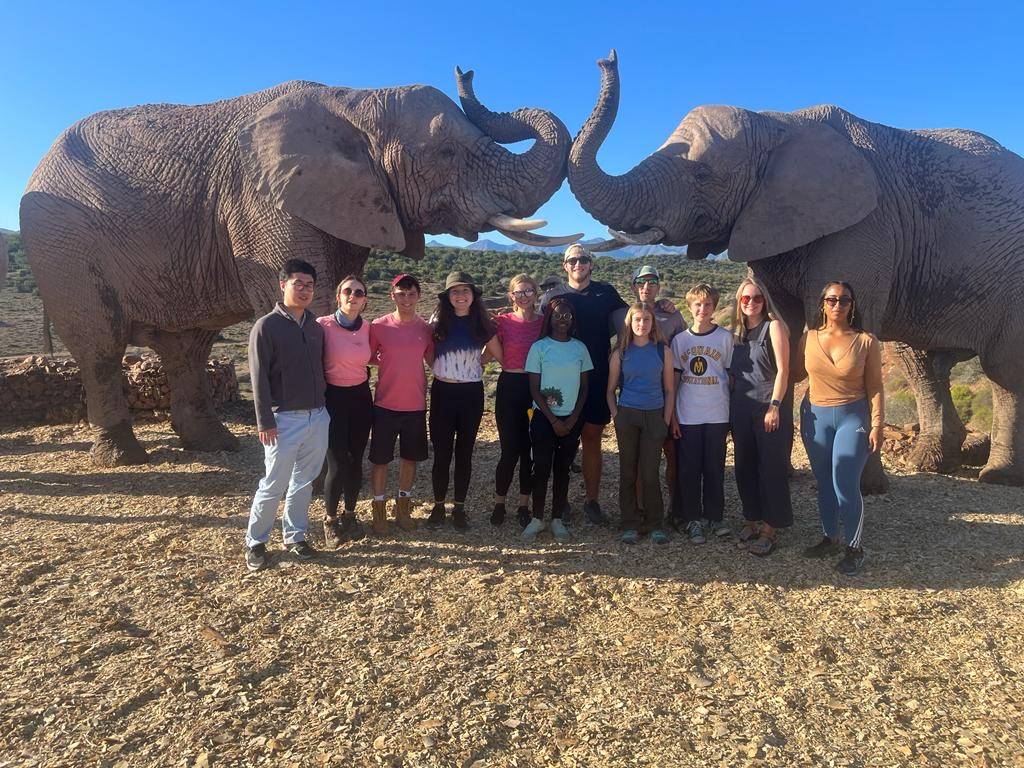Last fall, Associate Professor of Geography Mike Loranty led the South Africa Study Group, located at the University of Cape Town.
The theme for the study group was “Biogeography in the Anthropocene.” In their biogeography class, the group focused on the factors controlling the distribution of plants and animals in southern Africa, with a special focus on the endemic and highly biodiverse fynbos biome in which Cape Town is located. The group worked to understand how biogeographic factors have led to such high biodiversity.
During the second half of the semester, the students focused on how humans affect these biogeographic processes and what this means for conservation. All of this work was complemented by readings and discussions in a course taught by Tammy Wilks of UCT, Representations of Africa. That course interrogated how Africa and Africans have been portrayed to outsiders as well as the socio-political ramifications of such portrayals.
A highlight of the semester was the spring break trip, on which the group traveled along the Garden Route in southwestern South Africa to learn a bit more about several of the biomes they had been studying. This included plenty of wildlife viewing at Addo Elephant National Park and an up-close visit with several elephants at a private wildlife reserve (note: these were orphaned by poachers and then rescued and raised on the reserve, so they can’t be released). The trip also contained some hiking, paddling, and visits to to places as different as a cave and an ostrich farm.
The study group allowed students to spend time exploring all that Cape Town had to offer, and some of the students ventured farther around South Africa and to neighboring countries.
